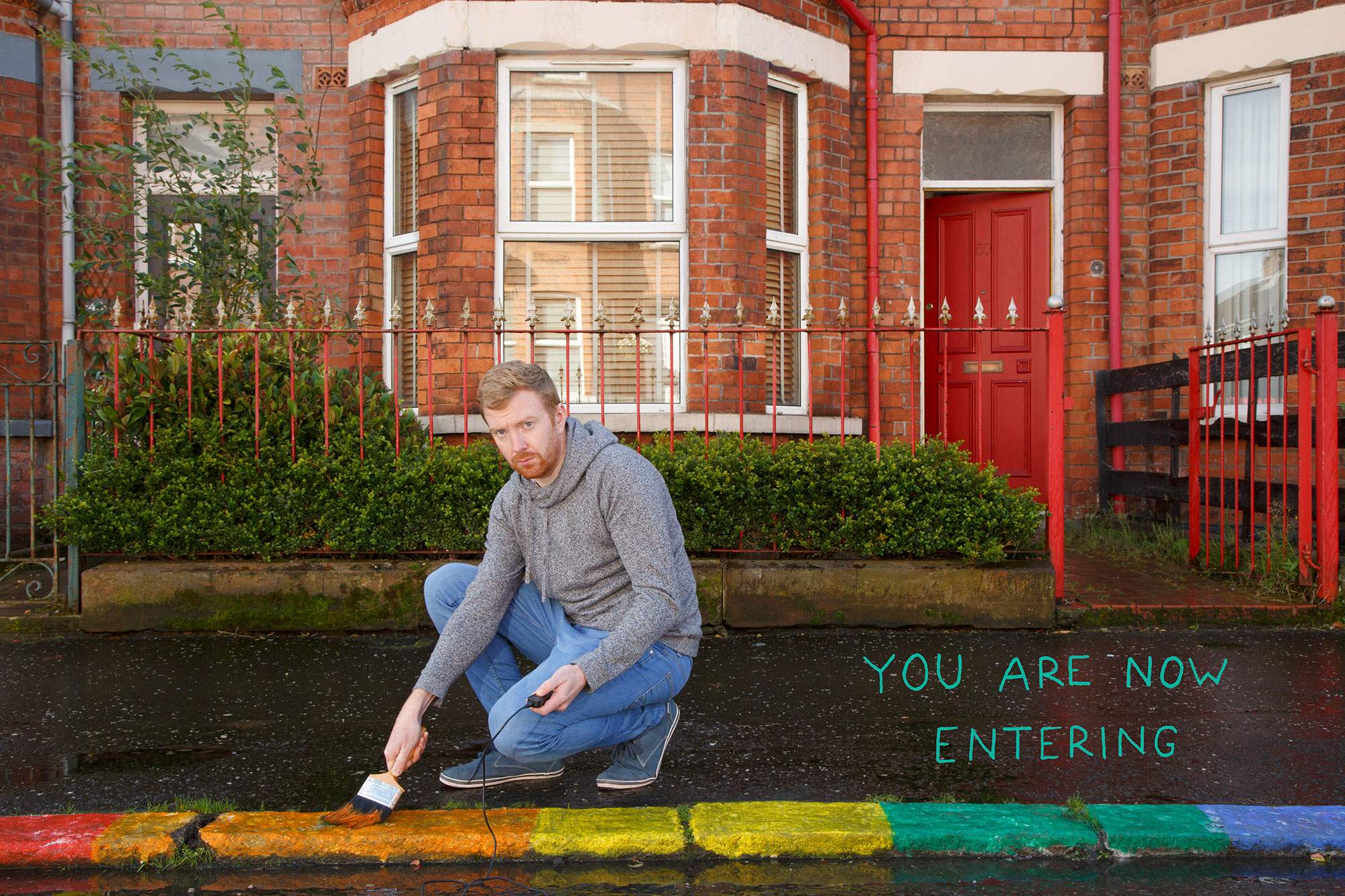Duration: 1/09/16 - 28/02/18
Staff Involved: Dr Fidelma Ashe (PI); Co-Investigators Dr Catherine Gander (Maynooth University) and Steffi Lehner (Queen's University)
Project Description
During the Northern Irish peace process (1998 -) lesbian, gay, bi-sexual, transgender and queer (LGBTQ) people have been excluded from participating in shaping visions of a peaceful future in both societal and political realms. The social, cultural and political import of this marginalisation remains under-examined, particularly within academic accounts of peace-building.
This project seeks to redress the marginalisation of LGBTQ people in conflict transformation processes by providing them discursive and artistic fora to express their stories of political conflict, conflict transformation, and visions of peace.
By analysing the processes, practices and outcomes of these expressions via the interdisciplinary application of methodologies across the arts, humanities and social sciences, the project seeks to address this critical gap in research and scholarship, at the same time generating an archive of reusable data and establishing transferable research models for use in other contexts wherein particular communities are marginalised in conflict transformation policies and processes.
A core aim of the project is to investigate the potential effects on the wider public of the embodied and visualised articulation of these stories and visions in the creative forms of theatre and photography. Performative and photographic practices have recently been successfully employed in storytelling initiatives to enhance cross-community relations in societies emerging from conflict; this project extends these researches to explore how artistic, cultural interventions by a marginalised and silenced community can help shape imaginings of a shared peaceful and inclusive future.

‘Collaborative Self-Portrait of Raymond Dunn from Let Us Eat Cake by Anthony Luvera, 2017’
The twin objectives of the project are therefore recognition of the histories and visions of LGBTQ people by the wider public and by policy-makers, and participation of LGBTQ people in framing broader visions of peace. The project is unique in its cross-disciplinarity, bringing together experts and practitioners in the fields of literary and gender studies, politics and conflict transformation, visual culture, photography, curating, applied drama, social work and community-building to address these key concerns.
The innovative and highly collaborative nature of the project aims to stimulate creative interventions in the Northern Irish peace-building context by piloting a co-designed methodology that challenges the dominant frameworks in conflict transformation processes and research. The project aims ultimately not only to effect public perceptions of the LGBTQ community and its role in envisioning a peaceful future, but to extend that impact to policy-makers in Northern Ireland.

